This article was medically reviewed by Victor Catania, MD. Dr. Catania is a board certified Family Medicine Physician in Pennsylvania. He received his MD from the Medical University of the Americas in 2012 and completed his residency in Family Medicine at the Robert Packer Hospital. He is a member of the American Board of Family Medicine.
There are 18 references cited in this article, which can be found at the bottom of the page.
wikiHow marks an article as reader-approved once it receives enough positive feedback. This article received 12 testimonials and 82% of readers who voted found it helpful, earning it our reader-approved status.
This article has been viewed 240,479 times.
If you've felt fatigued or unusually exhausted, consider whether you have anemia. Anemia is a medical condition where your body does not have enough red blood cells to function properly. Whether your body isn't producing enough red blood cells, red blood cells are being destroyed by your body, or the anemia is caused by another medical condition, see your doctor for a diagnosis. While you'll need to follow the specific treatment regimen provided by your doctor, you may also need to take supplements, change your diet, and use medications.
Steps
Using Dietary Changes and Supplements
-
1Increase your iron intake. If you take an iron supplement as directed by your doctor, you should be able to improve your iron levels over time, which may treat anemia caused by iron deficiency. There are some side effects from iron supplementation, including dark stools, stomach upset, heartburn, and constipation. If your anemia is mild, your doctor may just recommend that you eat more iron-rich foods. The following are good sources of iron:[1]
- Red meat (beef and liver)
- Poultry (chicken and turkey)
- Seafood
- Cereals and breads fortified with iron
- Legumes (peas; lentils; white, red, and baked beans; soybeans; and chickpeas)
- Tofu
- Dried fruits (prunes, raisins, and apricots)
- Spinach and other dark green leafy vegetables
- Prune juice
- Vitamin C helps your body absorb iron, so your doctor will likely recommend that you drink a glass of orange juice or consume foods high in vitamin C along with your iron supplement.[2]
-
2Take vitamin B12. If your anemia is caused by a vitamin deficiency, take a vitamin B12 supplement if your doctor recommends it. Most likely, your doctor will give you a vitamin B12 injection or pill once a month.[3] This will allow your doctor to monitor your red blood levels and determine how long treatment is needed. You can also get vitamin B12 from food. Foods high in vitamin B12 include:
- Eggs
- Milk
- Cheese
- Meat
- Fish
- Shellfish
- Poultry
- Foods fortified with vitamin B12 (like soy beverages and vegetarian burgers)[4]
Advertisement -
3Get more folate (folic acid). Folic acid is another B vitamin that is needed for proper blood cell growth. A folate deficiency can cause anemia, so your doctor will most likely recommend a supplement dosage to treat your condition. If your symptoms are moderate to severe, you may be given folate injections or pills for at least 2 to 3 months.[5] You can also get folate from your diet. Foods with high levels of folic acid include:[6]
- Bread, pasta, and rice fortified with folic acid
- Spinach and other dark green leafy vegetables
- Black-eyed peas and dried beans
- Beef liver
- Eggs
- Bananas, oranges, orange juice, and some other fruits and juices
-
4Limit your alcohol intake. Alcohol can keep your body from producing blood cells, create defective red blood cells, and prematurely destroy your blood cells. While an occasional drink won't do any lasting damage, repeated or heavy drinking can cause anemia.[7] [8]
- If you're already anemic, take care to limit your alcoholic intake, since it will only make your condition worse.
- The National Institute on Alcohol Abuse and Alcoholism recommends no more than 1 drink per day for women and no more than 2 drinks per day for men as "moderate" consumption.[9]
Using Medical Treatments
-
1Get blood transfusions. If you have severe anemia from a chronic disease, your doctor may recommend blood transfusions.[10] You'll be given healthy blood that matches your own via an IV. This is done to give you a large amount of red blood cells immediately. The transfusion will take between 1 and 4 hours to complete.[11]
- Depending on the severity of your condition, your doctor may recommend regular blood transfusions.
-
2Take iron reduction pills. If you're getting frequent blood transfusions, your iron levels may build up. High levels of iron can damage your heart and liver, so you'll need to reduce the amount of iron in your body. Your doctor may give you an injection to reduce iron levels or will prescribe a medication.
- If prescribed a medication, you'll need to dissolve the tablet and drink the solution. Usually, this treatment is needed once a day.
-
3Get a bone marrow transplant. The marrow inside your bones contains stem cells, which develop into blood cells that your body needs. If you have anemia caused by a failure of your body to develop functional blood cells (aplastic anemia, thalassemia, or sickle cell anemia), your doctor may suggest a bone marrow transplant. The stems cells will be injected into your bloodstream and from there they'll move to your bone marrow.[12]
- Once the stem cells reach your bone marrow and graft on, they'll begin to create new blood cells, potentially treating the anemia.
Recognizing Symptoms of Anemia
-
1Identify symptoms of mild anemia. Some people's symptoms are so mild, they may not realize it, but there are identifiable subtle signs of anemia. If you have only mild symptoms, schedule an appointment with your primary care provider. Mild symptoms include:[13]
- Fatigue and weakness since your muscles aren't getting enough oxygen.
- Shortness of breath, which is a sign your body needs more oxygen. You may only notice this when doing a physical activity, if your anemia is mild.
- Pale skin because you lack enough red blood cells to make up the red hue of your skin.
-
2Recognize symptoms of severe anemia. Severe symptoms are signs that more of your organs are affected by the decreased oxygen in your bloodstream and are trying to circulate more blood through your body. These also indicate that your brain is being affected. If you have severe symptoms, see a doctor as quickly as you can. You may want to go to urgent care of the emergency room which can assess you sooner. Severe symptoms include:[14]
- Dizziness
- Headache
- Decrease in cognitive ability
- Fast heartbeat
-
3See your doctor for a blood test. Your doctor will confirm anemia with a simple blood test called a Complete Blood Count, which determines the number of red blood cells your body has to see if they're too low.[15] Your doctor can help you figure out if your anemia is acute or chronic. Chronic means it has been going on for a while and that you are in no immediate danger.[16] Acute anemia means it is a new health problem and that the problem should be identified quickly to prevent progression to something more dangerous.[17] Once a cause is determined, the correct treatment can be started.
- Your doctor may also order a body imaging scan (like a CT or MRI) or more advanced blood tests. If all tests are inconclusive, a bone marrow biopsy might need to be done.[18]
Expert Q&A
-
QuestionMy mother has just been diagnosed with Anemia, and I would like to know the reason for her to get cold even on a hot day?
 Lisa Bryant, NDDr. Lisa Bryant is Licensed Naturopathic Physician and natural medicine expert based in Portland, Oregon. She earned a Doctorate of Naturopathic Medicine from the National College of Natural Medicine in Portland, Oregon and completed her residency in Naturopathic Family Medicine there in 2014.
Lisa Bryant, NDDr. Lisa Bryant is Licensed Naturopathic Physician and natural medicine expert based in Portland, Oregon. She earned a Doctorate of Naturopathic Medicine from the National College of Natural Medicine in Portland, Oregon and completed her residency in Naturopathic Family Medicine there in 2014.
Licensed Naturopathic Physician Feeling cold even when it's hot is a common symptom of anemia. However, it can have other causes, as well. For instance, an under active thyroid, diabetes, circulation problems, and other conditions can cause you to feel cold.
Feeling cold even when it's hot is a common symptom of anemia. However, it can have other causes, as well. For instance, an under active thyroid, diabetes, circulation problems, and other conditions can cause you to feel cold.
Warnings
- If your doctor diagnoses you with anemia of a chronic disease (like cancer, HIV, or inflammatory diseases) or aplastic anemia (a very rare form of anemia), you'll need to work with your medical team. In many cases, treatment of the anemia is also dependent upon treatment for the other conditions.⧼thumbs_response⧽
References
- ↑ https://ods.od.nih.gov/factsheets/Iron-HealthProfessional/
- ↑ https://www.canr.msu.edu/news/iron_and_vitamin_c_the_perfect_pair
- ↑ http://www.nlm.nih.gov/medlineplus/ency/article/000574.htm
- ↑ http://www.nhlbi.nih.gov/health/health-topics/topics/anemia/treatment
- ↑ http://www.hopkinsmedicine.org/healthlibrary/conditions/hematology_and_blood_disorders/anemia_of_folate_deficiency_85,P00089/
- ↑ https://medlineplus.gov/ency/article/002408.htm
- ↑ http://www.nytimes.com/1982/09/30/us/for-the-drinker-there-is-bad-and-good-news.html
- ↑ http://pubs.niaaa.nih.gov/publications/arh21-1/42.pdf
- ↑ http://www.niaaa.nih.gov/alcohol-health/overview-alcohol-consumption/moderate-binge-drinking
- ↑ https://www.cancer.org/treatment/treatments-and-side-effects/physical-side-effects/low-blood-counts/anemia.html
- ↑ https://my.clevelandclinic.org/health/treatments/14755-blood-transfusion
- ↑ https://www.nhlbi.nih.gov/health/health-topics/topics/bmsct
- ↑ https://my.clevelandclinic.org/health/diseases/3929-anemia
- ↑ https://my.clevelandclinic.org/health/diseases/3929-anemia
- ↑ https://www.radiologyinfo.org/en/info/anemia
- ↑ https://www.ncbi.nlm.nih.gov/books/NBK534803/
- ↑ https://www.ncbi.nlm.nih.gov/books/NBK537232/
- ↑ https://www.radiologyinfo.org/en/info/anemia
- ↑ https://medlineplus.gov/ency/article/007478.htm
- ↑ https://www.nhs.uk/conditions/heavy-periods/
About This Article
Before you treat your anemia, talk to your doctor to make sure you’re healthy enough to manage anemia at home. Once your doctor approves it, try changing your diet to increase your iron intake, which may improve your anemia. To do this, eat iron-rich foods like red meat, poultry, lentils, tofu, and dried fruit. Besides eating foods with iron, you should eat foods with vitamin b12, like eggs, bread, pasta, and spinach, since anemia can be caused by a vitamin deficiency. If you think you’re still not getting enough iron and vitamin b12, consider taking over-the-counter supplements. To learn how to get medical treatment for more serious anemia, read more from our Medical co-author.

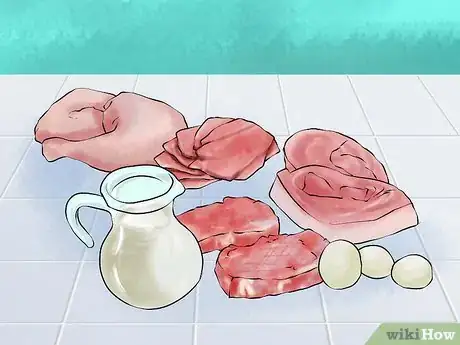
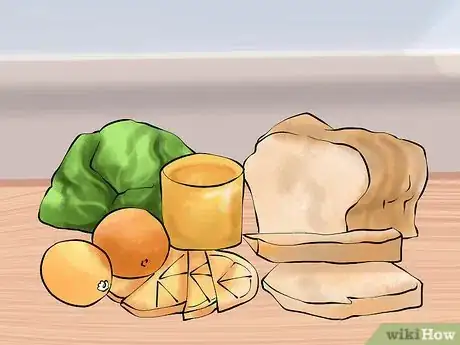
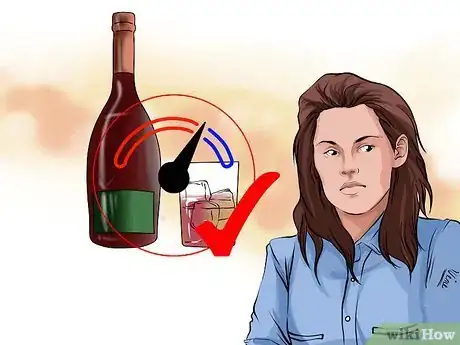
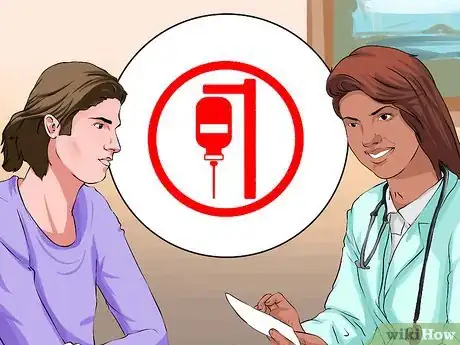
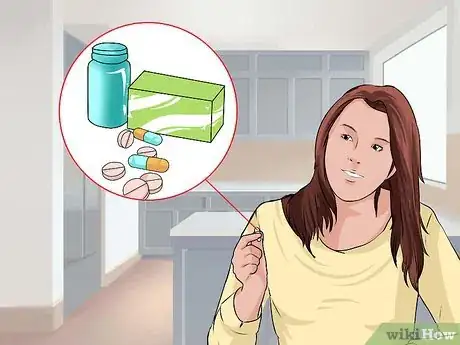
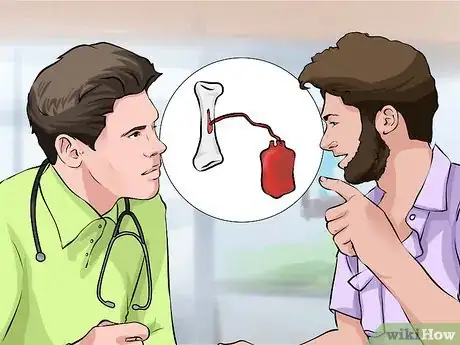
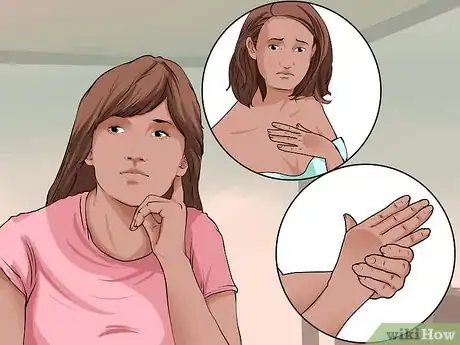
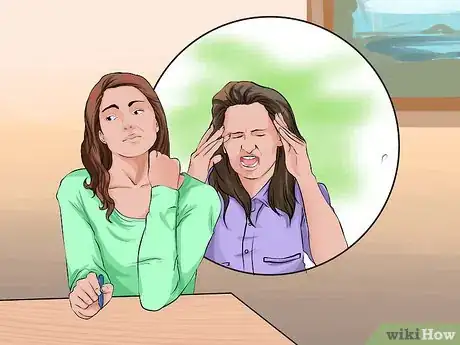
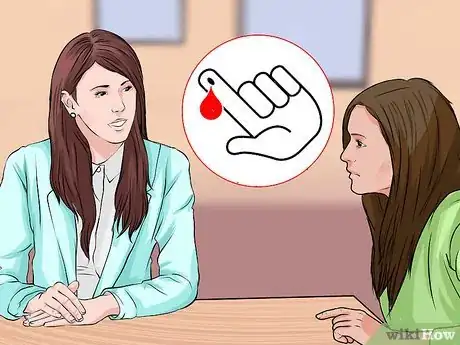
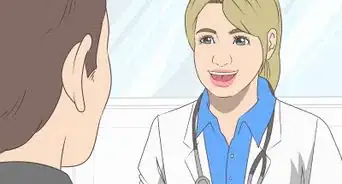
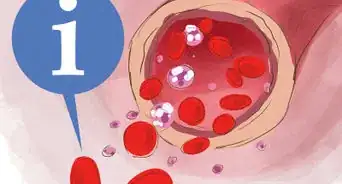
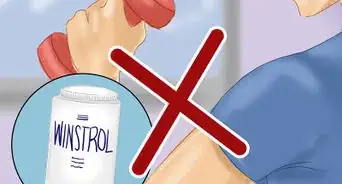
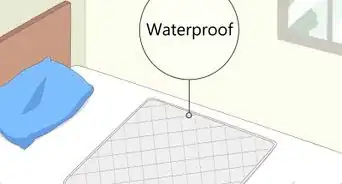
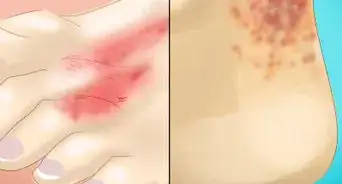
-Step-22.webp)

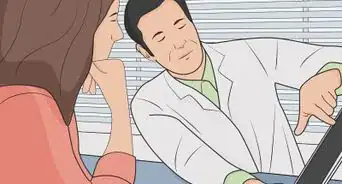











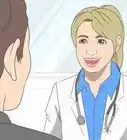
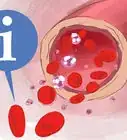
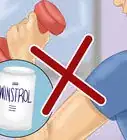
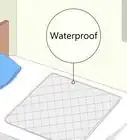



































Medical Disclaimer
The content of this article is not intended to be a substitute for professional medical advice, examination, diagnosis, or treatment. You should always contact your doctor or other qualified healthcare professional before starting, changing, or stopping any kind of health treatment.
Read More...